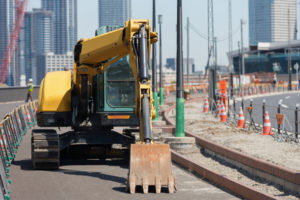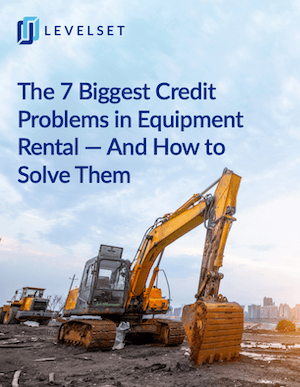
One of the most powerful tools available to construction companies to secure payment they have earned is the mechanics lien. A mechanics lien secures the amount due by tying the debt to the improved property itself, and accordingly, provides a strong incentive for the property owner to make sure all of the participants on the project get paid appropriately.
With all of the ways mechanics liens can work to get you paid, it’s no wonder that questions constantly surround who can use this tool. While mechanics lien statutes generally provide relatively broad protection to the parties who furnish labor and/or material to for the improvement of real property – questions can arise related to many aspects of what actually counts. One relatively common question is whether equipment rental companies have mechanics lien protection on their projects.
Equipment Rental Companies Generally Have Mechanics Lien Rights
Mechanics lien laws are really state statutes created by each state’s legislature. Most legislatures have noted that the protection afforded by mechanics liens should be broadly applied to the benefit of parties – all of the construction companies participating on the job – that are seeking protection.
While this is by no means a hard and fast rule, the general idea would be that absent a provision that specifically defines a project participant as unprotected by mechanics liens, the scale would tip toward the availability of a mechanics lien as an option.
In some states and some cases, participants like suppliers-to-suppliers or parties some significant way down the contracting chain, are expressly forbidden from claiming mechanics lien protection – but this is rarely the case for equipment rental companies.
However, the fact that it is rare for equipment lessors to be specifically defined as unprotected is not the end of the story. While many states clearly address the mechanics lien right for equipment rental companies (with some even going so far as to require additional statutory notice requirements or impose different deadlines) the rules in some other states are confusing or ambiguous.
Sometimes there’s no black & white answer
In most of the states that don’t specifically mention equipment rental companies as parties allowed to file mechanics liens, the answer to ‘who can file’ can be complicated.
In some states, the answer may depend on whether the equipment lessor also furnished labor. In other states, access to lien rights depends on whether the equipment lessor identifies as a subcontractor.
The rules, court decisions, and lawyer interpretations do not do a whole lot to clarify whether mechanics lien protection extends to equipment lessors in many of these ambiguous states, and equipment rental companies may be in a sort of limbo until a case finally makes it to the state’s supreme court and provides the waited for clarification.

Get the credit guide
Download a free guide to learn how to solve the 7 biggest problems that credit teams face in equipment rental companies.
Until then, while there are certainly aspects of some state law that make the applicability of mechanics liens for equipment lessors questionable, it seems like the best course of action is generally to err on the side of protection. Equipment rental companies would be best served to act as if they are protected in all situations, and use the notice and lien process to secure the amounts owed to them.
This stance can be adjusted to the extent that there are future legal decisions or statutory clarifications made during a state legislative session to disallow lien protection to equipment lessors, but, given the time that the laws have remained ambiguous (or trended toward protection), a change in that direction would be relatively surprising.
Given the additional benefits associated with providing preliminary notice, it makes little sense to abandon that practice and, since the general case is that equipment lessors are protected, on the off-chance a lien is needed it’s much more likely it will be allowed than disallowed.


